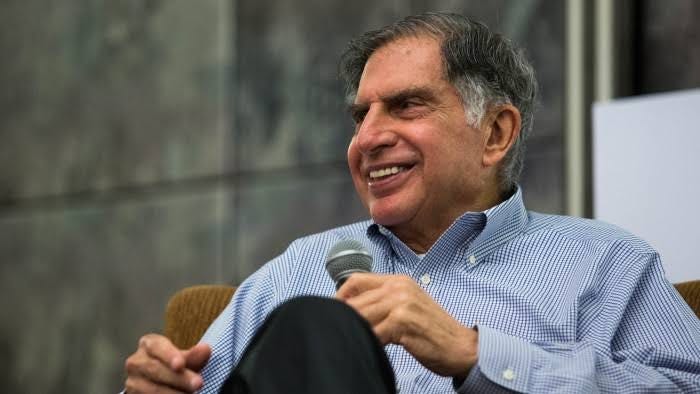Ratan Tata, born on December 28, 1937, in Mumbai, India, was a distinguished industrialist, philanthropist, and former chairman of Tata Sons, the holding company of the Tata Group, one of India’s largest and oldest conglomerates. With a legacy that spanned several decades, Tata played a crucial role in transforming the Tata Group into a global powerhouse while emphasizing the importance of corporate responsibility and social welfare. He passed away on October 9, 2024, leaving behind a remarkable legacy.
Early Life and Education: Ratan Tata came from a prestigious lineage; he was the great-grandson of Jamsetji Tata, the founder of the Tata Group. Ratan completed his schooling in Mumbai and pursued his undergraduate studies at the University of California, Berkeley, where he earned a degree in architecture. He also attended the Harvard Business School, graduating from the Advanced Management Program in 1975. His educational background laid a solid foundation for his future endeavors in the business world.
Career at Tata Group: Ratan Tata joined the Tata Group in 1962 and started his career at Tata Steel in Jamshedpur, where he worked on the shop floor and gained firsthand experience in the industry. Over the years, he held various positions within the Tata Group, demonstrating his leadership and strategic vision. In 1991, Ratan Tata took over as the chairman of Tata Sons, succeeding J.R.D. Tata.
Under Ratan Tata’s leadership, the Tata Group witnessed significant growth and diversification. He was instrumental in launching several iconic products, including the Tata Indica, India’s first indigenous car, and the Tata Nano, which aimed to be the world’s cheapest car. Ratan Tata's vision extended beyond automobiles; he also spearheaded initiatives in sectors like IT, telecommunications, hospitality, and consumer goods, expanding the group’s global footprint.
Philanthropy and Corporate Responsibility: Ratan Tata was renowned not only for his business acumen but also for his commitment to philanthropy and social responsibility. He believed that businesses should contribute to the welfare of society and engage in initiatives that promote sustainable development. The Tata Group is known for its emphasis on ethical practices and community development, with a significant portion of its profits directed toward social causes through its charitable trusts.
Tata’s philanthropic initiatives focused on education, healthcare, rural development, and women’s empowerment. He was involved in various programs aimed at improving the lives of underprivileged communities across India. His belief in the importance of giving back to society set a precedent for corporate social responsibility in India.
Awards and Recognitions: Ratan Tata’s contributions to industry and society have been recognized with numerous awards and honors. He received prestigious accolades such as the Padma Bhushan (2008) and the Padma Vibhushan (2014), two of India’s highest civilian awards. He was also honored with honorary doctorates from several universities, reflecting his significant impact on business and education.
Legacy and Influence: Even after stepping down as chairman in 2012, Ratan Tata remained an influential figure in the business community. He continued to mentor young entrepreneurs and actively invested in startups, particularly in technology and innovation sectors. His insights and vision for sustainable development inspired a new generation of business leaders in India and beyond.
Conclusion: Ratan Tata’s journey from a young executive to a visionary leader is a testament to his dedication, resilience, and commitment to social responsibility. His leadership not only transformed the Tata Group but also contributed significantly to India’s economic landscape. As a philanthropist and advocate for ethical business practices, Ratan Tata's legacy continues to inspire countless individuals to pursue excellence while making a positive impact on society. His life serves as a powerful reminder that true success is measured not just by financial achievements but by the difference one makes in the lives of others.

